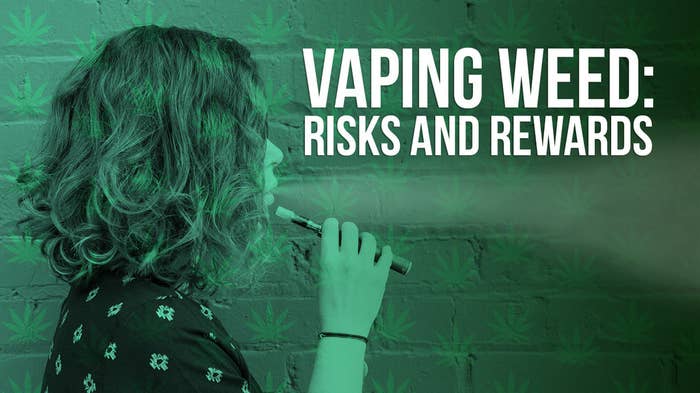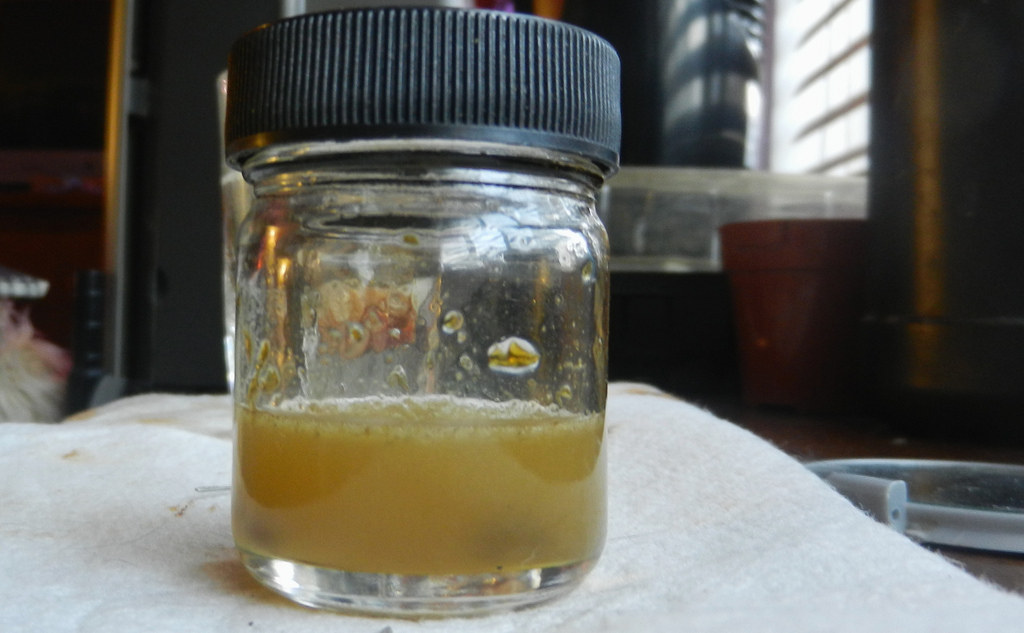
Over the past decade, as cigarette smokers have switched by the thousands to vaporizers, potheads, too, have discovered vaping as a healthier and less smelly way of getting high.
Whoopi Goldberg, for example, has a vape named Sippy, which she uses to treat her glaucoma. "The vape pen has changed my life," Goldberg wrote at The Cannabist. "With each sip comes relief — from pressure, pain, stress, discomfort."
Vaporizers range from cheap bodega models with glass, metal, or plastic cartridges full of hash oil to futuristic pods with smartphone apps that retail for hundreds of dollars. Crowdfunding campaigns for newer, better vapes pop up every few months. (BuzzFeed's drugs reporter Amanda Chicago Lewis reviewed 15 vapes in 15 hours, if you're looking for recommendations.)
"Getting a new vape is almost as good as getting a new smartphone," Isaiah, a 24-year-old from Brooklyn, told BuzzFeed News. Vaping is "cleaner, cooler, more modern, healthier, more economical, tastes better, easier to handle, and I never need matches or a lighter."
Many people vape weed because of the assumed health benefits. Take Larry, a 26-year-old start-up founder in Atlanta. He isn't a regular pot smoker, but when he does he prefers vaping. "If I'm going to partake I might as well do so in a manner that doesn't increase cancer," he told BuzzFeed News.
But how safe is it, really? Here's what medical experts say.
Vaping seems to reduce the harmful lung effects of smoking.
This is a big deal, since the biggest risk of smoking weed is the smoke itself, which contains the same kind of cancer-causing chemicals as cigarette smoke.
Smoking is associated with bronchitis and emphysema, as well as the inhalation of carcinogens, according to Marilyn Huestis, chief of chemistry and drug metabolism at the National Institute on Drug Abuse, who has studied the physiological effects of vaping marijuana. "People who vaporize report decreased respiratory symptoms" compared to those who smoke weed, she told BuzzFeed News in an email.
Studies have shown that cannabis users regularly report breathing easier after switching to vapes. And the vapor itself is a lot cleaner than smoke from a joint.
Vaping bud is safer than vaping hash oil.
There are a few ways to vape. Many devices use regular bud, heated to a temperature to release the active ingredients of the pot — mostly THC (tetrahydrocannabinol) and CBD (cannabidiol) — as an aerosol while preventing actual combustion. Others use concentrates such as hash oil, which can contain sketchy ingredients like lighter fluid and pesticides.
"Vaporizing the bud you know is slightly more safe than vaporizing the oil you don't," Adam Winstock, a drug use researcher at King's College London, told BuzzFeed News. "But it's all safer than smoking spliff [British slang for weed], and it's certainly better than smoking spliff with tobacco."
In 2011, in partnership with The Guardian and Australian media company Fairfax, Winstock and other scientists from around the world founded the Global Drug Survey, which asked 37,000 drug users to talk about how and why they get high. The group publishes the High-Way Code, a series of guidelines for having the best and safest time possible when doing drugs. On its list of 10 suggestions for safe cannabis use, vaping is at the top.
Vaping vs Smoking #weed. An #infographic.
The strength of the weed matters, especially for new users.
For people who haven't smoked much before, the high concentrations of THC you get when vaping hash oil is something to be careful about, Mallory Loflin, who researches harm reduction in cannabis use at the University at Albany, SUNY, told BuzzFeed News.
This is especially important when vaping butane hash oil (BHO), which tends to be much stronger than regular weed. Typical BHO is at least 60% THC, whereas most weed is 15 to 20%, according to data from several cannabis testing labs.
"The first time someone smokes pot, if they take three hits of BHO, they're probably going to get a much higher concentration than they're going to know what to do with," Loflin said. But for more experienced users, this is less of a concern. "Because you get the effects very swiftly, people are pretty good at taking a hit and seeing where they're at."
It’s hard to really know what’s in your hash oil.
BHO is made by stripping the THC out of marijuana using lighter fluid or other solvents. (Read this BuzzFeed News article for more on what we don't know about BHO.)
"When you buy a gram of coke or MDMA, there's no quality control. That's going to be the same, for the moment, with BHO — there will be a risk of inhaling solvents," Winstock said.
Solvents aren't the only issue. The lack of regulation means chemicals like propylene glycol and artificial flavors can be added to concentrates without consistent labeling, despite a lack of research into what happens when you inhale the chemicals in high doses.
"There are some companies that sell themselves as being additive-free, but none of these things are regulated, so it's really hard to know what you're getting," said Ziva Cooper, who studies the physical effects of marijuana at Columbia University.

Don’t try to make hash oil at home.
Another serious danger is in people trying to make BHO themselves. Outside of Colorado and Washington, all BHO is DIY — which means amateurs are working with dangerous chemicals.
"Some people don't take the necessary precautions of working with flammable solvents and blow themselves and/or their houses up," Ryan Vandrey, who studies marijuana use at the Johns Hopkins School of Medicine, told BuzzFeed News by email.
The Bureau of Alcohol, Tobacco, and Firearms recently issued a warning about the risk of explosions — last year, there were 32 in the state of Colorado alone. So unless you're a chemist, don't try this at home.

